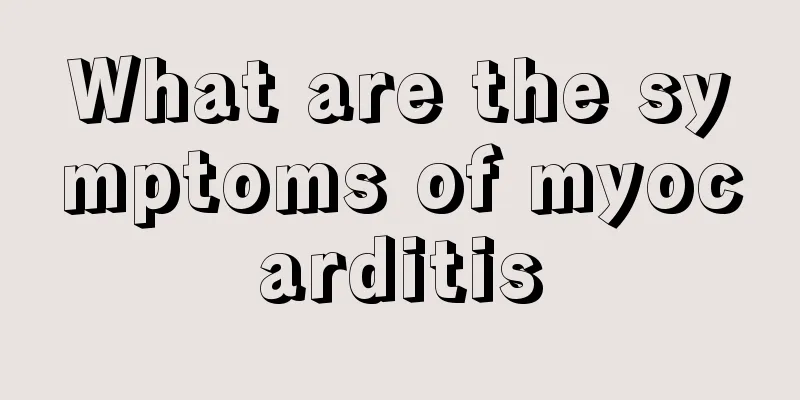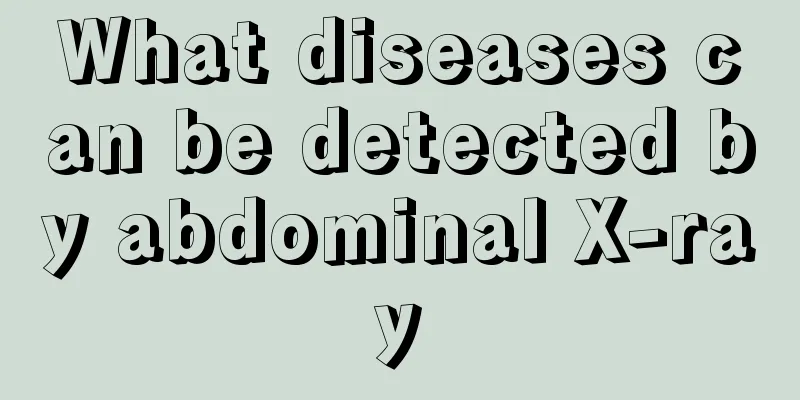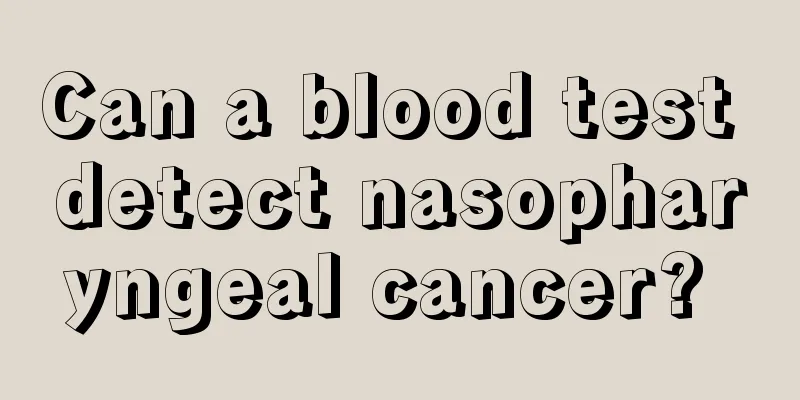What are the symptoms of myocarditis

|
Myocarditis is a disease change in the myocardium caused by various reasons, so we should do a good job in preventing myocarditis in our daily life, such as exercising properly, enhancing the body's immunity, ensuring adequate rest, and eating less irritating foods. Since the severity of myocarditis is different, the symptoms are also different. Now let’s talk about the symptoms of myocarditis. 1. General symptoms of myocarditis One to three weeks before the onset of the disease, there is an upper respiratory tract infection, tracheitis, pneumonia, or digestive tract infection and other viral diseases, including diarrhea, chickenpox, mumps, measles, hepatitis, etc. The clinical manifestations include fever, sore throat, cough, diarrhea, etc. and some symptoms of other viral infections. 2. Viral myocarditis The severity of viral myocarditis varies greatly, and the perceived symptoms are often milder than the actual condition and are often not taken seriously. Those with mild illness may be asymptomatic and are often discovered when patients seek medical treatment for other diseases or during physical examinations, or may only have electrocardiogram abnormalities. Severe cases have obvious symptoms and quickly develop into cardiogenic shock, acute heart failure, or severe arrhythmia, and may lead to death within hours or days. Symptoms of acute myocarditis may occur during the acute phase or recovery phase of a viral infection. If they occur during the acute phase, the symptoms are often masked by the systemic symptoms of the viral infection and are easily overlooked. The main symptoms of viral myocarditis generally include fatigue, pallor, sweating, palpitations, shortness of breath, chest tightness, dizziness, precordial pain, syncope, and convulsions. Myocarditis can be divided into three types: mild, moderate and severe. Mild cases may have no obvious symptoms. Arrhythmia or ST segment and T wave changes in several leads of the electrocardiogram may be discovered accidentally during or after a cold. Symptomatic patients may experience fatigue, weakness, loss of appetite, or mild palpitations, chest tightness, shortness of breath, and a slightly pale complexion, congestion in the pharynx, tachycardia or bradycardia, or irregular heartbeat during physical examination. The condition is mild and most patients can recover after rest and comprehensive treatment for several months. Most cases of myocarditis are of this type. 3. Moderate myocarditis There are fewer moderate and mild cases, and they show clinical symptoms of mild myocarditis. Most of them have congestive heart failure, which has an acute onset, prominent fatigue and weakness, dizziness, palpitations, chest tightness and shortness of breath, sweating, pale complexion, and older children may complain of precordial pain. Similar to angina pectoris in adults, a few also have abdominal pain, joint pain and myalgia. The child may be irritable, sometimes have shortness of breath, and cold hands and feet. Tachycardia, bradycardia or irregular heart sounds, low and dull heart sounds, a blowing-like systolic murmur at the apex, and a pericardial friction sound when combined with pericarditis. The liver may be enlarged to varying degrees and may be painful. If the children can receive timely diagnosis and treatment, most cases can be cured after one or several years. Some cases may be prolonged and turn into chronic myocarditis, or die from congestive heart failure. 4. Severe myocarditis Severe cases are even rarer and often present with an explosive onset. Symptoms of heart failure appear within a few hours to 1-2 days, or cardiogenic shock occurs quickly. Children are extremely tired, weak, dizzy, vomit, and have abdominal pain. Older children complain of precordial pain or pressure. Some are irritable, wheezing, coughing, or coughing up bloody foamy sputum, have rapid breathing, and cannot lie flat. Auscultation may reveal tachycardia, bradycardia or severe arrhythmia. The disease progresses rapidly and the child may die from acute heart failure, cardiogenic shock, or severe arrhythmia within hours to days. If rescued in time, many children can improve quickly and be out of danger after several days to dozens of days. Some children will recover completely, some will have frequent arrhythmia attacks, and a few will develop chronic myocarditis. |
<<: What are the symptoms of dehydration? What you need to know about diarrhea!
>>: What should I do if my facial skin is inflamed?
Recommend
Controlling the diet of patients with esophageal cancer is the key to treatment
At present, the number of people suffering from e...
What causes silver bracelets to turn black?
Girls all love beauty, and every girl wants to ha...
Things to note for lung cancer patients after surgical treatment
Lung cancer is the most common primary lung malig...
What should I pay attention to if I have lung nodules
The lungs are an important respiratory organ in t...
Where is the lumbar ligament?
Calcification of the lumbar ligaments is a very s...
How to diagnose prostate cancer
How to diagnose prostate cancer? Prostate cancer ...
Does bladder cancer need radiotherapy after chemotherapy?
Is radiotherapy necessary after chemotherapy for ...
Western medicine for treating dry cough
When there is an itchy feeling or a foreign body ...
How to treat blood viscosity, diet therapy is the best choice
The main cause of blood viscosity in the human bo...
Early treatment of ovarian teratoma
Ovarian teratoma is a common ovarian germ cell tu...
What to eat every day to prevent lymphoma
In recent years, lymphoma has become one of the m...
Is it good for your health to be a vegetarian all the time?
Vegetarian dishes are mainly composed of vegetabl...
Can Schisandra chinensis treat premature ejaculation?
If Schisandra chinensis is used reasonably, it ca...
Liver cancer patients can relieve pain through daily diet
Liver cancer patients may experience pain due to ...
Let's briefly talk about the key causes of prostate cancer in life
In recent years, the incidence of prostate cancer...









